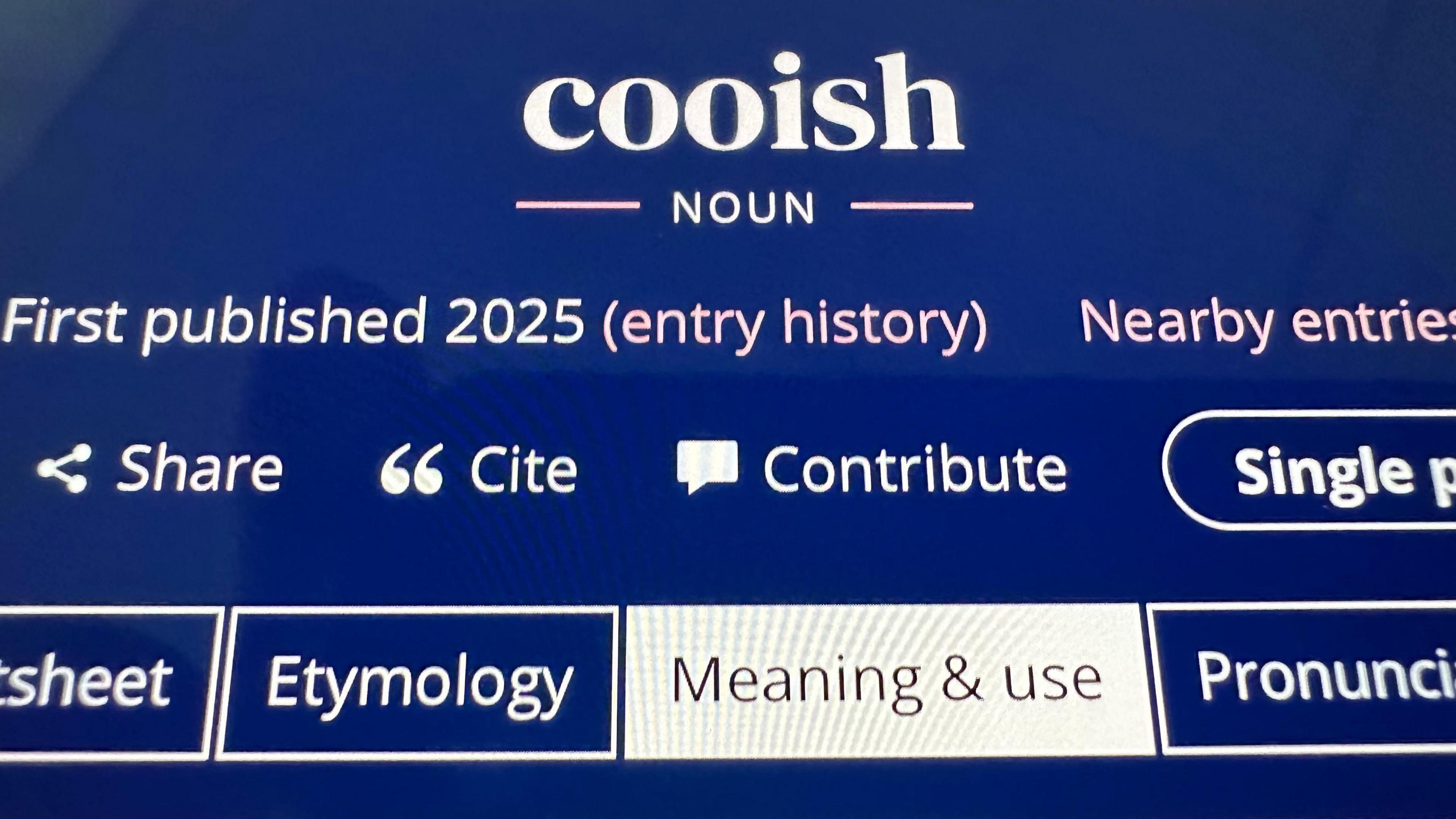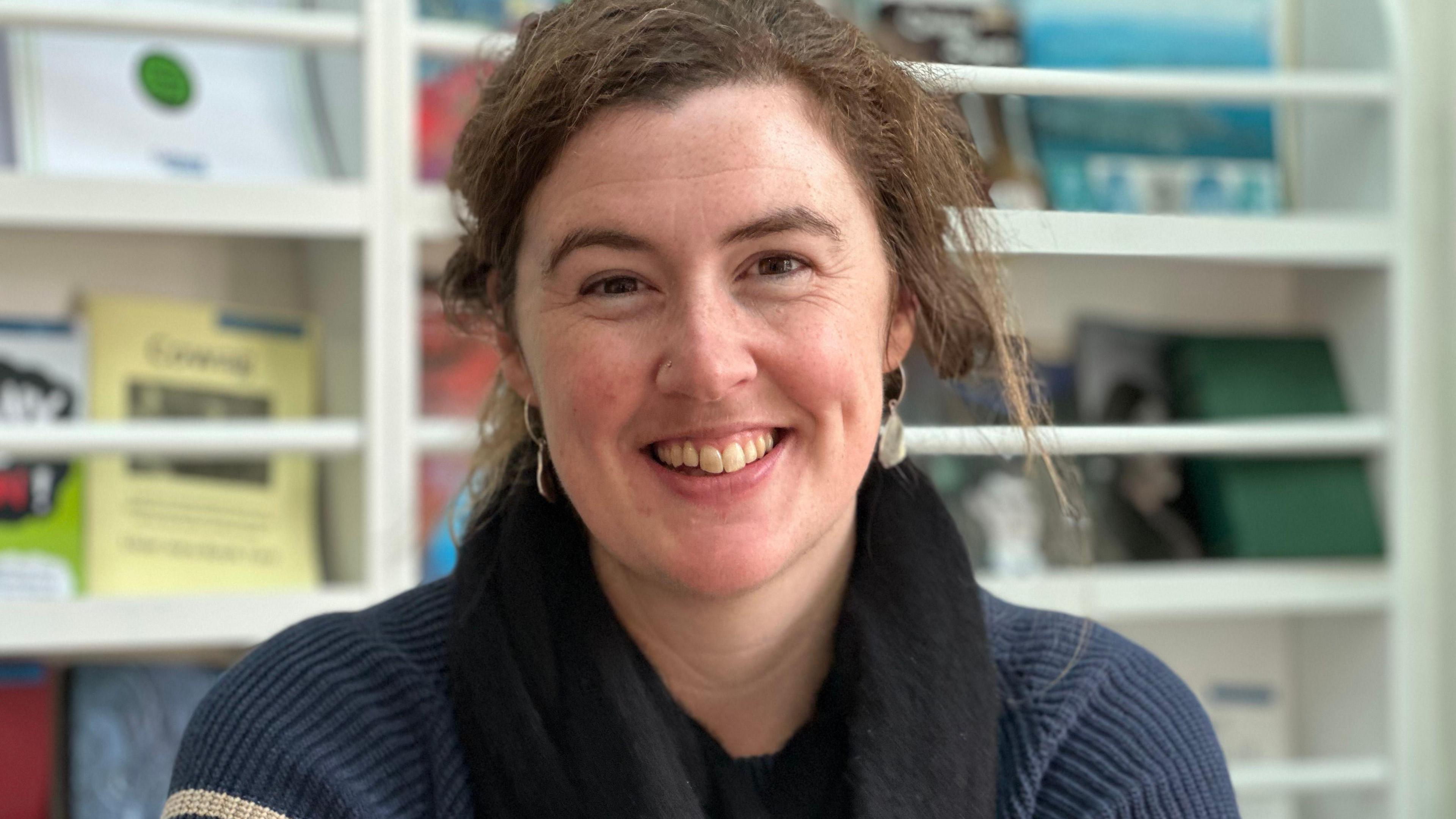Three Manx words among latest dictionary additions

Cooish, which means a friendly chat, is among the new words added
- Published
Words from the Isle of Man for a traditional open-hearth fireplace, an outside toilet and friendly conversation or chat are among the latest to be added to the Oxford English Dictionary.
"Chollagh", "thie veg", and "cooish" all feature in the benchmark dictionary's latest update.
Danica Salazar, the OED's executive editor for world English, said its role was "to tell the whole history of the English language through the history of its words" - including from unique corners of the globe such as the Isle of Man.
Originally from Manx Gaelic, Ms Salazar said the new additions had become part of the spoken English language on the island, with written references to all three dating back to the 1800s.
The dictionary includes some 500,000 words and phrases used in the past and present from across the English-speaking world.
Ms Salazar said it not only contained words that "all English speakers know" but also "those words that are specific to certain regions of the world".
"One of those regions where you have like a particular variety of English that is spoken is the Isle of Man, so it's very, very important for the OED to record the unique vocabulary of the Isle of Man as well," she said.
"That's why we chose to include these three words in the dictionary in this update."
What do the words mean?
Chiollagh, external - A tall, wide fireplace with an open hearth, of the type found in traditional Manx buildings. (Earliest written reference (1861).
Cooish, external - A friendly conversation, a chat. Also as a mass noun. Now rare except with reference to Manx culture or to gatherings of people of Manx heritage. (Earliest written reference 1878).
Thie veg, external - A toilet or lavatory, esp. (now chiefly historical) one which is external to a main building. (Earliest written reference 1875).

Danica Salazar said it was important for the OED to "record the unique vocabulary"
Ms Salazar said: "The OED only includes English words.
"But what makes the English as it's spoken on the Isle of Man interesting is that there's the presence of Manx Gaelic on the island.
"So that means that these two languages are in constant contact, so it just makes sense for some words to be borrowed from Manx Gaelic into Manx English - and that's what's represented by these three words."
Why does their inclusion matter?
Ruth Keggin-Gell, Manx language officer at Culture Vannin, said it was "really great" to see the words being represented "especially as those particular Manx Gaelic words are a part of our Manx English spoken here".
"It's lovely to see those represented and I'm sure many, many people know those particular words."
"It shows that these words are prevalent and are still part of Manx English. It's very clear in the dictionary entries that those are of Manx Gaelic origin."
"These Manx words – and I will say Manx words rather than Isle of Man words – very much have a Manx Gaelic background, they are Gaelic words.
"They show the uniqueness and the linguistic diversity that we have here because we've got our own language, and I think to have that represented is fantastic and very exciting to see and hopefully will help tell more people worldwide about language and help spread it further."

Ruth Keggin-Gell said the words helped to show the "uniqueness" of the island's language
Among other words originating in Manx Gaelic entered into the dictionary previously were bonnag, buggane, cushag, phynnodderee, skeet, tholtan and traa dy liooar, while Manx dialect words including hop tu naa and yessir were also added in past updates.
Ms Salazar said: "The Isle of Man is a self-governing British Crown dependency where English is the dominant language but Manx Gaelic, an endangered Celtic language, is also officially recognized and is undergoing revitalization.
"The influence of Manx Gaelic on Manx English can be seen in the loan words that have been added to the OED as part of this update."
Get in touch
Tell us which stories we should cover on the Isle of Man
Read more stories from the Isle of Man on the BBC, watch BBC North West Tonight on BBC iPlayer and follow BBC Isle of Man on Facebook, external and X, external.
Related topics
More like this story
- Published14 June 2018
